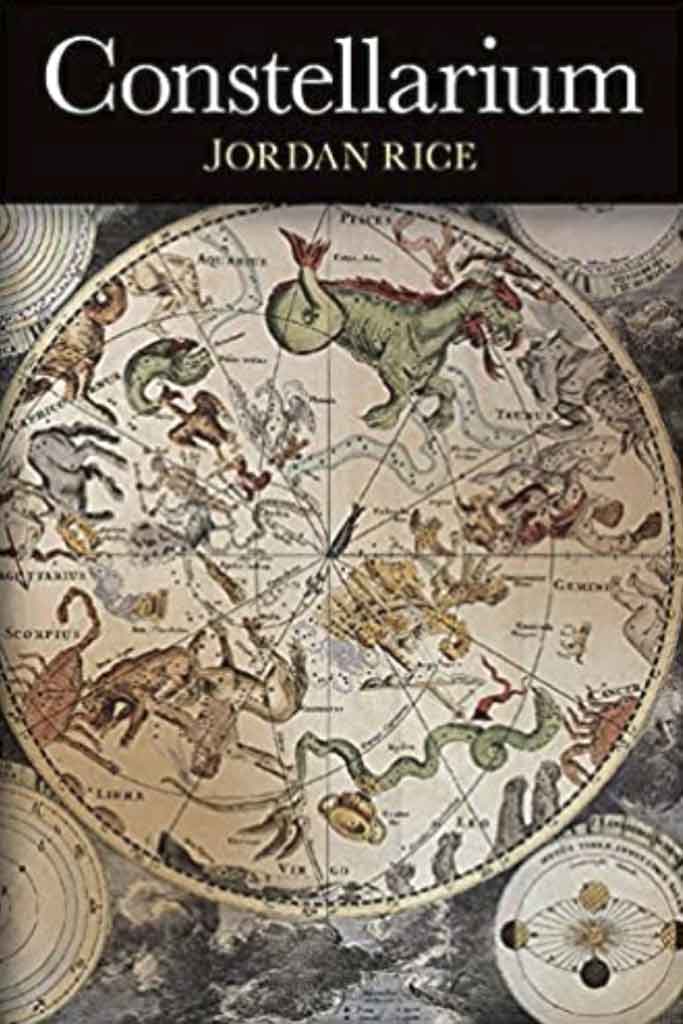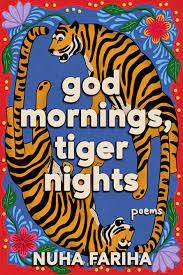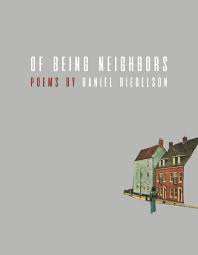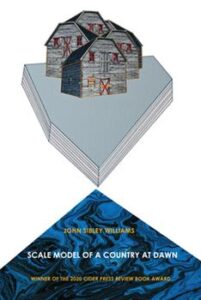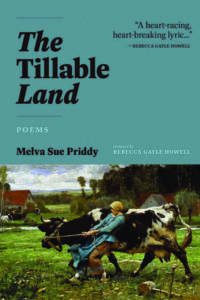Review by Hannah Widdifield // August 7, 2017
Orison Books
ISBN 978-0-9906917-7-8
90 pp. / $16.00
In her debut collection of poetry, Jordan Rice guides readers through the transformative process of being and becoming. The central topic at hand is Rice’s transition from biologically male to female, but as the title of her collection suggests, this is only one in a series of processes of change, not only for herself, but for anyone engaged in living. These processes, regardless of how we try to tidy and organize them, are perhaps only fully appreciated when they are spread out before us so that we may make our own myths and tales out of self-constellations.
Divided into four sections, Constellarium begins with a series of poems wherein Rice wrestles directly with her personal transition and gender identity at both a conceptual and actualized level. The opening poem’s engagement with the mundane experience of laser hair removal transcends to profundity as it invokes the fear, pain, and visceral sensation of transformation as she smells the stubble on her face singe.
The second section confronts identity, bodily integrity, and the struggles that surround its realization in a more indirect fashion, offering poem topics that range from the strain of military service to the Columbia space shuttle disaster. “Inheritance” sees the poet struggling to reconcile not merely her gender identity with her body, but her body to her spirit. The poem addresses the gravity of violent death, invoking brutal wound imagery, all the while quietly philosophizing about the material barrier that a body can be, separating our soul selves from the rest of the world: “Even if a bullet strikes us dead center, we can still fire back, though the body in shock won’t hear a room flash into silence.”
Passover, the next section, is the shortest of all, comprised of only three poems, and is perhaps the most challenging to place within the narrative of the collection as a whole. Addressing both war and a sort of family-tradition-religion triad, this section maintains a nervous energy that compliments its erratic organization. The poem “Passover” is no longer a biblical tale, but is replaced with stories of a family trip and an uncle far away in battle. The poems within this segment serve as a refreshing reminder that not all experience can be trimmed and fit into a grander narrative and must be accepted in its raw and ragged form.
The fourth section sees Rice at her most experimental in terms of format, but also includes perhaps the most painful of her verses. Calling upon violent experiences like sexual abuse and kidnapping, the poet situates her own painful struggles in the context of the world’s painful struggles. And yet, the section and the collection end with “Saudaude,” a salve for the soul, which is Rice’s most easily graceful poem. In it, she recounts her pre-transition loss of virginity to a young woman she genuinely cared for in a hotel that the young woman’s father owned. The narrative is tender and uncomplicated: the highest bit of conflict is the threat of being caught by the girl’s father. In it, Rice’s past self already knows how necessary the moment will be in getting through her future struggles. She implores herself: “Remember her palms placed together on your chest, and her breath at your shoulder, past the men she will love and those she will take as lovers, the nights you lie alone and begin to regret.” This final poem is a rich foil to an earlier poem in the collection that talks of her child who will gain a mother, but ultimately lose a father once Rice transitions. “Saudaude,” however, encapsulates the essential opposite of regret, whatever that may be—nostalgia, reverie, or a quiet and simple love of a moment of beauty from another life.
ABOUT THE REVIEWER
Hannah Widdifield is a modernist and a disability studies scholar currently working on her PhD in literature, criticism, and textual studies. As a disabled scholar, she is interested in exploring the ways that modernity shapes societal conceptions of disability.


